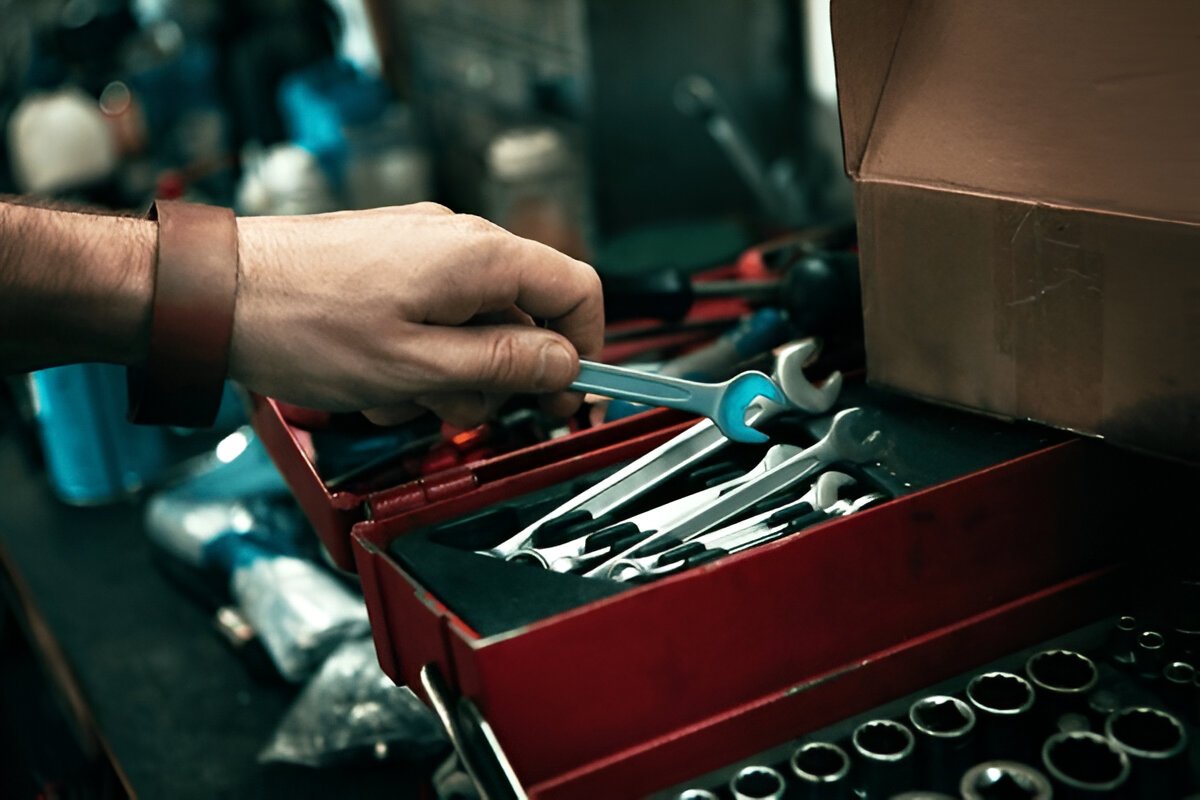For getting a job done without breaking the bank, hand tools are hard to beat. Whether you’re building furniture, fixing a leak, or cutting wood, the right tool for the job can save time, effort, and money.
But how are hand tools cost effective? Their low upfront cost, no need for power, and long-lasting quality make them a smart choice. They are great for anyone on a budget or looking for reliable tools that don’t have ongoing costs.
So, how are hand tools cost effective? Unlike electrically powered gear, they don’t need batteries or outlets. And with the right care, a quality type of tool like an adjustable wrench or long nose pliers can last for years.
What Are Hand Tools?
Hand tools are tools operated by hand rather than electricity. This includes cutting tools, pliers, wrenches, hammers, screwdrivers, and many others. People have used these tools since the Iron Age, and they still use them in homes, garages, and workshops today.
They are often cheaper to buy. They are easier to carry and do not need charging. This makes them great for basic repairs and jobs that need accuracy or control.
Types of Hand Tools and Their Uses
Many types of hand tools exist, and each one has a purpose. Whether you’re looking at cutting wood, tightening bolts, or hammering nails, there’s a type of tool that fits the task:
- Claw hammer – used to drive nails or remove nails.
- Ball peen hammer – often used in metalwork.
- Slip joint pliers – adjustable and handy for gripping objects of different sizes.
- Long nose pliers – great for reaching tight spaces or bending wire.
- An adjustable wrench helps you tighten or loosen
These are just a few examples. The key is using the right tools in hand that match the work you’re doing.

Hand Tools vs Power Tools
The debate between hand tools vs power tools comes down to cost, control, and convenience. Power tools are faster for large-scale tasks, but they can be expensive and need more maintenance. Hand tools use no electricity, cost less upfront, and work better in tight or awkward spaces. For tasks that require precision or careful movement, hand tools often win.
Benefits of Using Cheap Hand Tools
Even a cheap hand tool can be dependable if chosen well. A well-made low-cost wrench or hammer can handle most DIY jobs and basic repairs. If you are on a budget, it is better to build a collection of essential hand tools. This is smarter than spending money on expensive tools and power tools that you may not use often.
How Are Hand Tools Cost Effective?
- Lower upfront costs – Hand tools are cheaper than most power tools.
- No electricity needed – No energy bills or batteries required.
- Longer lifespan – Good hand tools can last decades with proper care.
- Less maintenance – No motors or wiring to fix.
- Portability – Light, compact, and easy to carry to any job site.
Simply put, hand tools reduce spending while still helping you get the job done.

FAQ
What are the advantages of hand tools?
They’re affordable, simple to use, and ideal for performing tasks that need control or accuracy. They’re also portable and require little maintenance.
Why are hand tools better than power tools?
For many smaller jobs, they offer more control, less noise, and fewer safety concerns. Plus, you won’t need to worry about power sources.
What are the benefits of properly stored hand tools?
Proper storage keeps tools sharp, clean, and ready for use. It also extends their lifespan and avoids rust or damage.
What are two disadvantages of hand tools?
They can be slower than powered tools for large tasks and may require more physical effort over long periods.
For more guides on tools, hand tools, or power tools, visit Industrial-Tools-Hub. They have updates, tool reviews, and expert tips for you.
Need more info on the best tools in hand for any job? Visit http://industrial-tools-hub.com/ and find exactly what you need.
